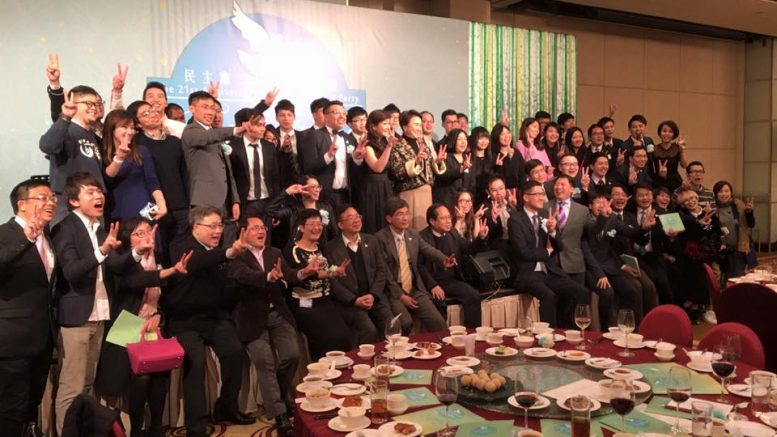By Chris Yeung —
For the sixth time over the past two years, an attempt by the Democratic Party to hold a fundraising dinner has ended in failure. It was not a surprise. Still, it has raised serious questions about why it could possibly happen and what it means for the Democrats and society at large.
The questions are still to be answered. But the verdict is clear. The dinner saga is bad for the Democrats and Hong Kong.
The latest setback came after the Democrats, now arguably the city’s main opposition party, again had no choice but to cancel a banquet at the eleventh-hour after they were told the venue was not available. This time, they were told, it was because of damage caused by Super Typhoon Saola at the weekend. Believe it or not.
Originally scheduled for Monday (4/9) at a Tsim Sha Tsui hotel, their reservation had been canceled, without being given an explanation. The Democrats made a switch change of the venue to the Kai Tak cruise terminal. The rest is history.
Like the previous cancellations, everyone seems to know why the dinners were called off but in fact they don’t know. Everyone knows it is because the dinner was hosted by the Democrats, but don’t know why restaurant operators were seemingly reluctant in serving the Democrats.
The behaviour of those restaurants would have bewildered late Nobel economics laureate Milton Friedman, who had hailed the city as the role model of free market economy. In the case of the Democrats’ dinner ordeal, there was only demand, not supply. Political pressure has distorted business behaviour. Market failed in catering to demand.
The Democrats’ dinner saga is anything but normal in a free society like Hong Kong. It risks making bad publicity for the city, giving more credence to the story of the erosion of freedoms following the implementation of a law on national security.
It sounds black humour to suggest the right of freedom to throw a dinner has now emerged as the addition to the list of curbs on such freedoms as demonstration and assembly and the press in the city.
That should have sent a warning to Chief Executive John Lee, who is keen to tell the world good Hong Kong stories. Lee, however, has reacted coolly.
Asked by reporters last week about whether the Democrats’ dinner was canceled because of political pressure, Lee said: “Any organisation that wants to organise activities for their own is a matter for themselves. How successful they can do that and how things can be arranged is also a matter for themselves.”
Superficially, Lee was stating the obvious. The Democrats’ plan to hold a dinner is a matter of their own. Whether and how they can do it is theirs with nothing to do with other people and the Government.
But it is equally obvious that what happened to the Democrats has defied reason and common sense.
The Democrats’ dinner ordeal has bred more anxieties and fears in the society that invisible political forces have been lurking in the dark and pulling strings behind the scenes to stop things from happening.
For unknown reasons, there are reasons to believe certain forces have made relentless efforts to spoil the Democrats’ dinner party. A Ming Pao report claimed an anonymous Executive Council member had intervened to block the dinner. A top adviser to China, Professor Lau Siu-kai, was quoted as saying he did not think Beijing was behind.
The legitimate questions raised about the irregularities of the dinner saga are vitally important in view of the fact that Hong Kong is a rules-based society with rule of law.
Any organisation and individuals have the right to organise lawful activities without bias and discrimination and undue political pressure. The Government is obliged to ensure the basic rules and norms of the city are being respected and followed.
There has been plenty of evidence suggesting the Democratic Party, a registered body, has become the target of hard-hitting malicious attacks publicly.
In a recent commentary in the Beijing-backed Wen Wei Po newspaper, Nicholas Muk Ka-chun, a vice-chairman of the youth wing of the Democratic Alliance for the Betterment and Progress of Hong Kong, questioned the party’s motives for holding a banquet, calling it a form of “soft resistance”.
Should not the Government clarify whether holding a banquet could be deemed as “soft resistance”? Should not Beijing come clean over the dirty play of spoiling a party?
(This article was first published on Green Bean Facebook)


Be the first to comment on "Spoiled Democrats’ dinner left a bad taste"